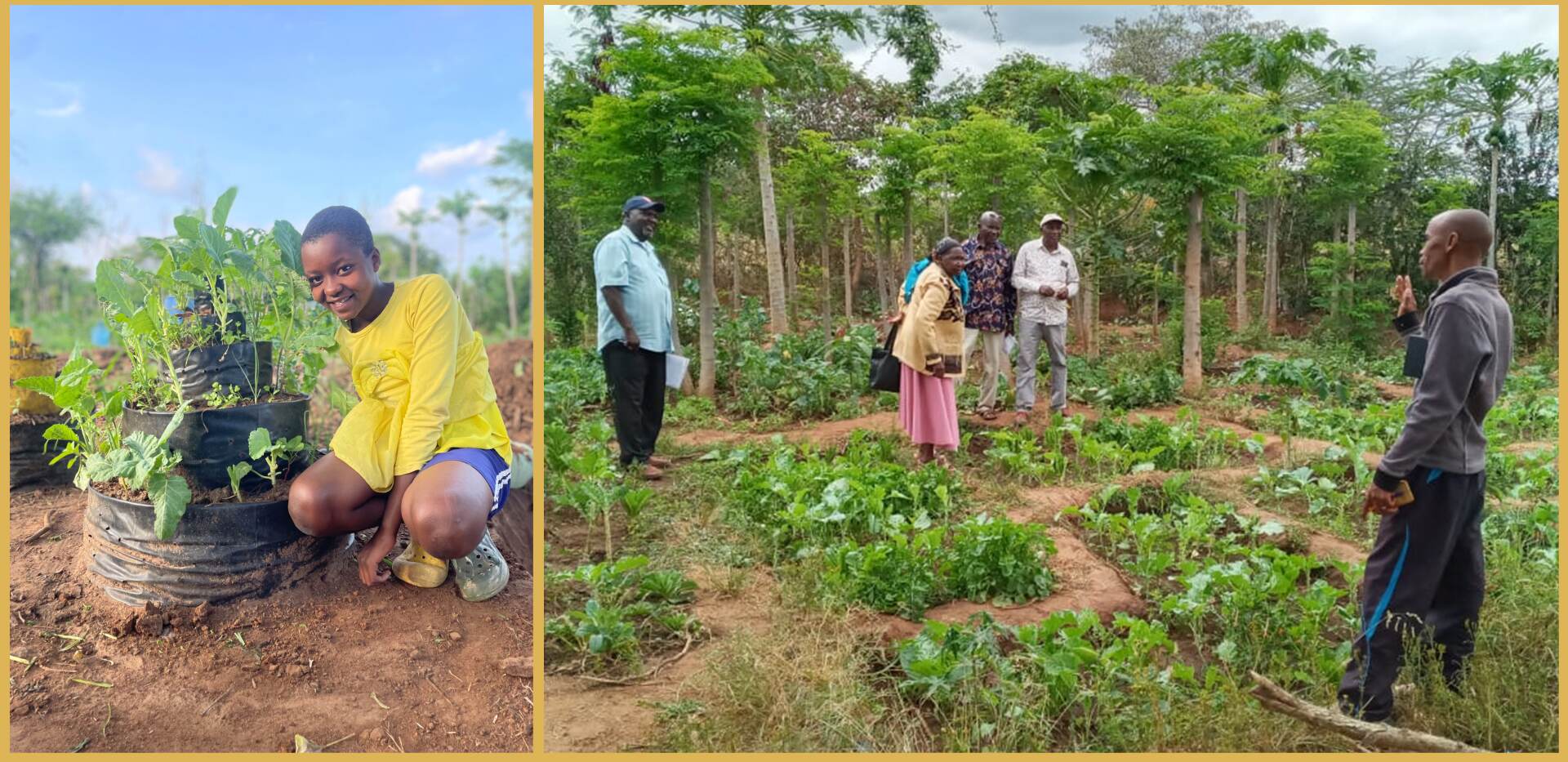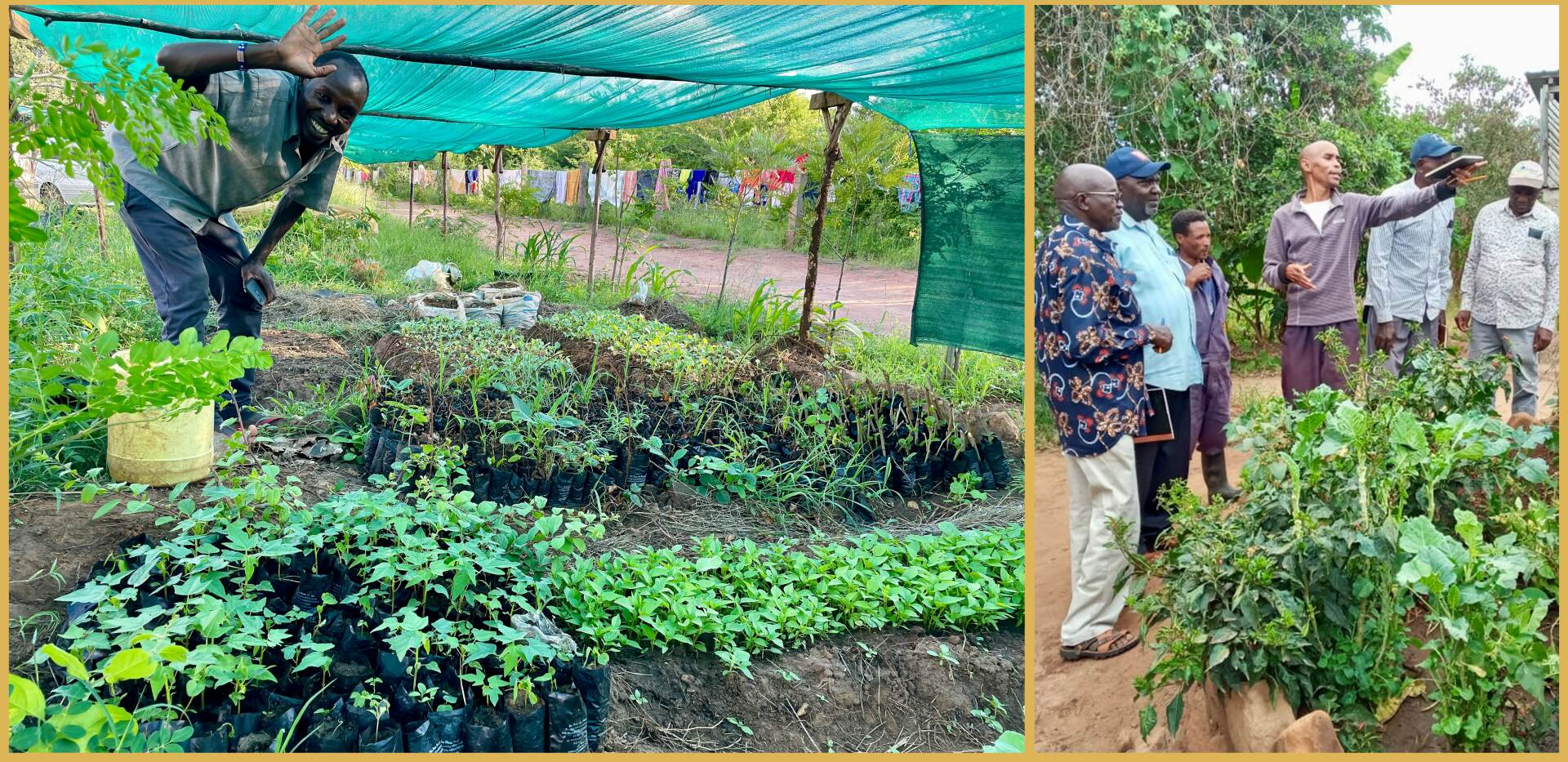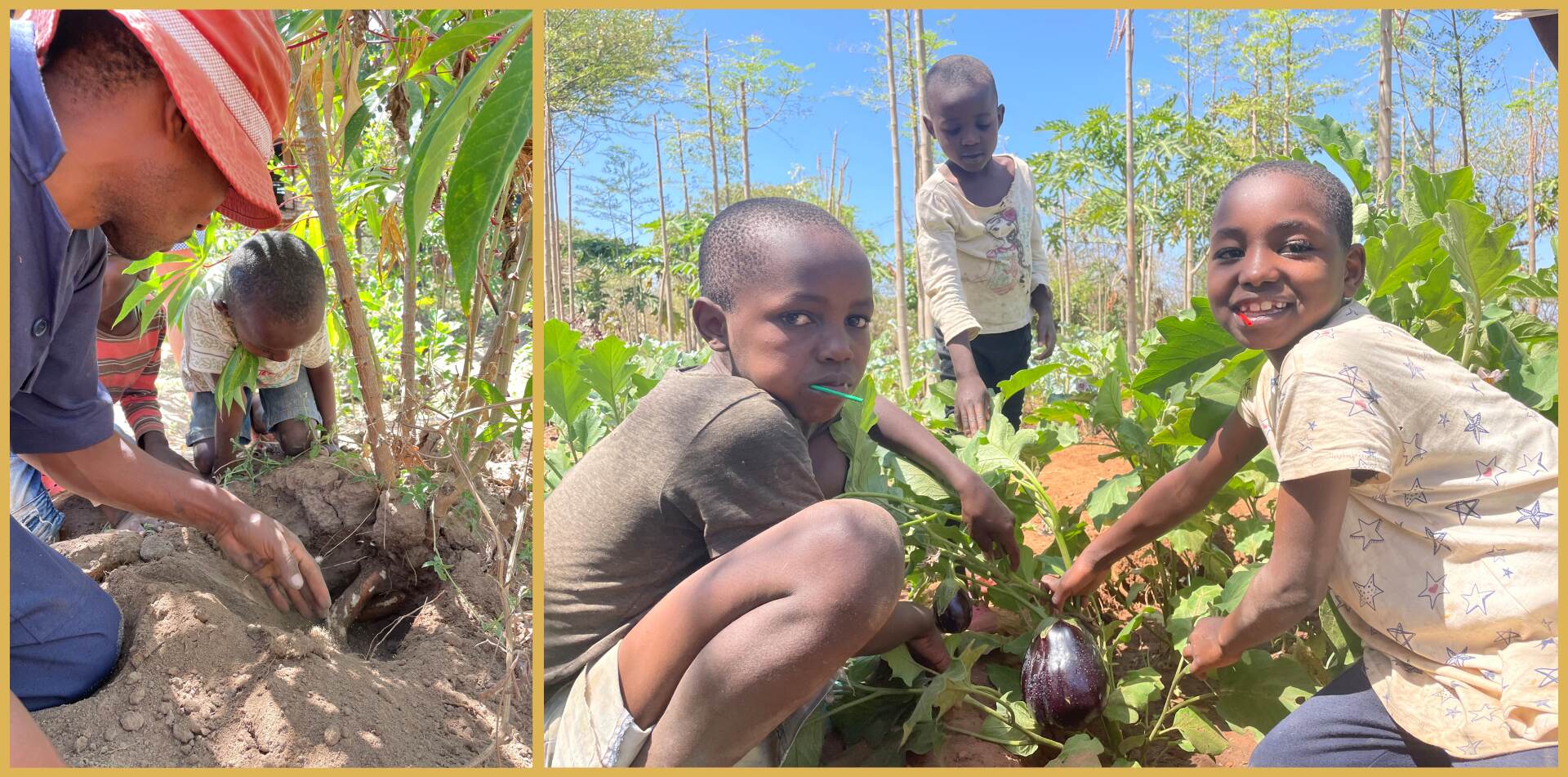Permaculture for a sustainable future - Part 1

Overcoming the challenges of the climate crisis at the Maua Villa children’s home and the region
The climate crisis poses a huge challenge for the Maua Villa children’s home and the people in the region. Droughts and water shortages are affecting crop yields and threatening the security of food supplies. Changing climatic conditions endanger biodiversity in the animal and plant world and the livelihoods of communities that depend on an intact ecosystem. However, forests, soils and other natural resources are not only suffering from changing climatic conditions, but also from the ignorance and lack of education of the people living in these areas. The majority of them still use wood as their primary source of energy, which is not replanted.
Together for sustainable agriculture
Together with the Food Forest Network - Sarasale e.V. and Hungry Cities Permaculture - we are currently working on a concept on how we can contribute to education for sustainable development in Kenya. Sarsarale e.V. is a non-profit organization that has been successfully setting up and supporting climate and environmental protection projects in the Global South for 15 years. Hungry Cities Permaculture is a collective of permaculture designers and trainers from Berlin, Potsdam and Brandenburg. In order to achieve the greatest possible impact, we want to implement a project based on three pillars in 2024.
- Part 1: Demonstration Farm
Design and construction of a demonstration farm in Maua Villa - Part 2: Permaculture Design Course
Certified permaculture design course with a focus on syntropic agroforestry for farmers in the community - Part 3: Roadshow
Roadshow to various permaculture projects to strengthen networking and exchange of experiences
The aim of the permaculture design course is to enable participants to practice land design in a resilient and sustainable way. Only together and with the support of as many people as possible can we transform the existing system. The main aim of the design course is to promote an understanding of natural cycles and how to recognize them. The main focus is on the basics, principles, methods and tools of permaculture and syntropic agroforestry and complex agroforestry systems.
What is Syntropic Agroforestry?
A syntropic agroforestry system is a form of agriculture that mimics the natural succession of nature, i.e. the return of animals, plants and fungi to a destroyed ecosystem. It relies on cumulative processes of life to restore the fertility of ecosystems. An ecosystem provides us with food, fiber, oils and wood for building and fire. It also purifies air and water, increases biodiversity and revitalizes the soil. Taken together, the systems are much more resistant to drought, floods, wind and forest fires than monocultures. We are convinced that it is important to demonstrate and utilize these wonderful properties in demonstration projects as an important building block against the crises of our time.

Demonstration Farm as a key element
With the demonstration farm, we are creating access to vital resources and also creating a place of learning for our children and the villagers. We are also laying the foundations for exchange and networking with other permaculture projects. An important goal is to train multipliers who can independently plant systems and organize educational measures.
To this end, we will apply for funding from foundations to finance the costs of running a certified permaculture design course and a networking exchange for the permaculture scene in Kenya.In addition, we need money to build the demonstration farm, the so-called Food Forest (forest garden) in Maua Villa.

You make the difference
Your donation enables the people in Maua Villa and the region to have secure access to food and valuable knowledge in dealing with nature. Even a little support makes a big difference!